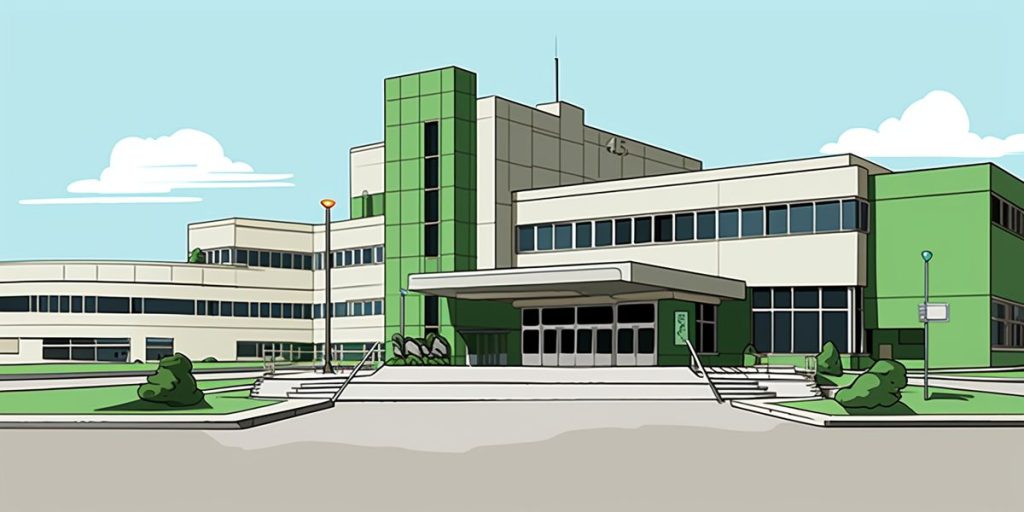The Larnaca hospital in Cyprus conducted a waste pilot programme that resulted in a 70-80% reduction in harmful substances from liquid waste, along with the eradication of some pollutants, improving environmental and public health safety. This innovative initiative, in collaboration with the Larnaca Sewerage Board and the University of Cyprus, used advanced treatment techniques to significantly lower the presence of pathogenic bacteria, setting a benchmark for future research and innovation in waste management practices.
What are the results of the Larnaca hospital’s waste pilot programme?
The Larnaca hospital’s waste pilot programme in Cyprus demonstrated a 70-80% average reduction in harmful substances from liquid waste, with some pollutants completely eradicated. Advanced treatment techniques significantly lowered the presence of pathogenic bacteria, improving environmental and public health safety.
Innovative Approach to Waste Management
In a significant move towards enhancing public health, the Larnaca hospital in Cyprus has successfully concluded a pioneering pilot scheme focusing on the treatment of liquid hospital waste. This initiative, part of the INTERREG VA Greece-Cyprus 2014-2020 cooperation programme, aimed at mitigating the environmental impact of hazardous waste before it enters the central sewage systems.
Collaborative Effort for Environmental Protection
The project, titled “On-Site Management of Hospital Liquid Waste,” was a collaborative endeavor involving the Larnaca Sewerage Board and the University of Cyprus. The project’s primary mission was clear: to treat liquid waste at its source, effectively curbing the spread of pollutants and pathogenic substances that pose a threat to both the environment and public health.
Cutting-Edge Treatment Techniques
Over the course of nine months, the pilot harnessed a variety of sophisticated physicochemical, biochemical, and chemical technologies. The Larnaca Sewerage Board, alongside the international research Centre for Nirea Water, conducted in-depth analyses through more than 20 samplings. The results were groundbreaking, showcasing an average removal of harmful substances by an impressive margin of 70-80 percent.
Pharmaceutical and Pathogenic Substance Analysis
A detailed examination into the types of pollutants revealed a significant reduction in numerous medicinal compounds, some even reaching a 100 percent eradication rate. Additionally, the scheme meticulously analyzed the presence of five pathogenic bacteria notoriously associated with hospital-acquired infections.
Leading the Charge in Microbiological Load Reduction
Among the various technologies deployed, aerobic and anaerobic treatments, complemented by advanced oxidation processes, were instrumental in slashing the microbiological burden. This comprehensive treatment system effectively surpassed the project’s main goal by demonstrating its prowess in eliminating a considerable proportion of noxious pollutants.
A Beacon for Future Research
The pilot unit’s success has not only underscored the efficacy of on-site waste treatment but also emphasized the critical nature of ongoing research in this field. Such initiatives are invaluable, paving the way for the development of new methodologies that will help shape regulatory frameworks focused on the proper management and treatment of hospital waste.
Ensuring Public Health Through Innovation
The findings from the pilot are a testament to the importance of continual innovation in waste management practices. These efforts are essential for protecting public health and present an optimistic outlook for the future application of these technologies across the healthcare industry.
Eurozone should not ease bank buffers, ECB says
Jean Christou
Related Posts
- Migrant arrivals from Syria double
- Potato farmers to decide on dynamic measures
- US helicopter crash was 30 miles off Cyprus coast
- Summer temperatures set to linger as storm brews
- Bank of Cyprus posts nine-month profit of €349 million — group performance ‘well ahead of targets’
-
Three fined for hunting violations
-
The Larnaca hospital in Cyprus conducted a waste pilot programme resulting in a 70-80% reduction in harmful substances from liquid waste and the eradication of some pollutants.
- The pilot program used advanced treatment techniques to significantly lower the presence of pathogenic bacteria, improving environmental and public health safety.
- The initiative was a collaborative effort between the Larnaca Sewerage Board and the University of Cyprus.
- The pilot program successfully treated liquid waste at its source, curbing the spread of pollutants and pathogenic substances.
- The pilot program utilized sophisticated physicochemical, biochemical, and chemical technologies over the course of nine months.
- The program achieved an average removal of harmful substances by 70-80% and some medicinal compounds were completely eradicated.
- The scheme also analyzed the presence of five pathogenic bacteria associated with hospital-acquired infections.
- Aerobic and anaerobic treatments, along with advanced oxidation processes, were instrumental in reducing the microbiological burden.
- The pilot program underscores the importance of ongoing research in waste management practices.
- Continued innovation in waste management practices is essential for protecting public health and has potential applications in the healthcare industry.

